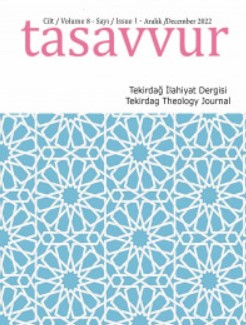COVID-19 Pandemi Sürecinde Uzaktan Eğitim: İlahiyat/İslami İlimler Fakülteleri Öğretim Elemanlarının Görüşleri
Distance Education During the COVID-19 Pandemic Process: Views of Faculty Members of Theology/Islamic Sciences Faculties
Author(s): Fatma KurttekinSubject(s): Higher Education , Health and medicine and law, Distance learning / e-learning, Pedagogy
Published by: Tekirdağ Namık Kemal Üniversitesi İlahiyat Fakültesi
Keywords: Religious Education; COVID-19 Pandemic; Distance Education; Faculty of Theology/Islamic Sciences; Faculty members;
Summary/Abstract: The role and attitude of the faculty members, who is one of the pillars of the education system, is important in making the evaluation of distance education, which began to be implemented quickly and suddenly with the pandemic process. For this purpose, the effects of the use of distance education in higher religious education were examined from the perspective of the faculty members. 134 faculty members working in faculty of theology/Islamic sciences participated in the research. In the research, the descriptive survey model, one of the quantitative research methods, was used. The data of the study was collected with a survey form consisting of 40 items in the five-point Likert type as well as demographic information. The analysis were made with S PSS 2 6 program using frequency (f), percentage (%) and mean (x̄) calculations from descriptive statistical methods. The findings in the dimensions of technology use and the role of the distance education support unit, preparation for lessons and motivation, teaching process and general evaluation of the method are presented in tables and interpreted. As a result, it was revealed that the anxiety and worry in the first stage decreased in the faculty members, they could adapt themselves to the distance education method sufficiently, but they were not satisfied with the efficiency of the courses, the attendance rates of the students, the assessment and evaluation methods used. The integration of distance education, which was found to be quite inadequate especially in achievements of applied courses, could not be fully achieved in the theology/Islamic sciences faculty programme. It can be said that the negative attitude towards distance education, which is evaluated as in the position of supporting traditional education, may change with the improvement works to be carried out.
Journal: Tasavvur Tekirdağ İlahiyat Dergisi
- Issue Year: 8/2022
- Issue No: 1
- Page Range: 31-60
- Page Count: 30
- Language: Turkish

